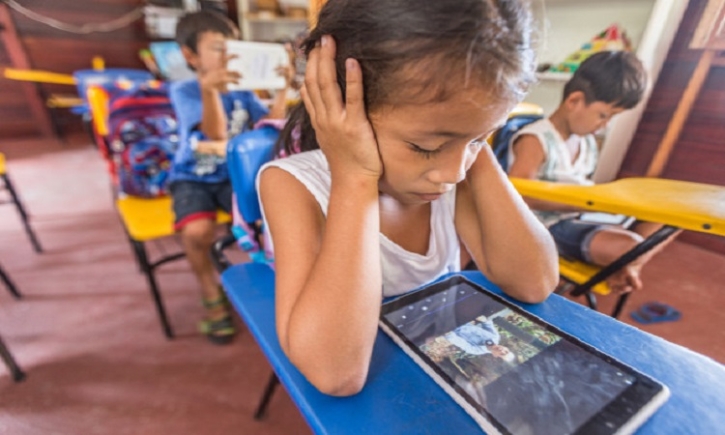UNESCO issues urgent call for appropriate use of technology in education
BI Report || BusinessInsider

Photo: Collected
UNESCO has issued an urgent call for the appropriate use of technology in education highlighting the lack of appropriate governance and regulation.
In its new global report published on Wednesday on the use of technology in education, UNESCO highlighted the lack of appropriate governance and regulation.
Many countries are urged to set their own terms for the way technology is designed and used in education so that it never replaces in-person, teacher-led instruction and supports the shared objective of quality education for all.
Is it appropriate?
Using technology can improve some types of learning in some contexts. The report cites evidence showing that learning benefits disappear if technology is used in excess or the absence of a qualified teacher.
For example, distributing computers to students does not improve learning if teachers are not involved in the pedagogical experience. Smartphones in schools have also proven to be a distraction to learning, yet fewer than a quarter of countries ban their use in schools.
Is it equitable?
During the Covid-19 pandemic, the rapid shift to online learning left out at least half a billion students worldwide, mostly affecting the poorest and those in rural areas.
The report underlines that the right to education is increasingly synonymous with the right to meaningful connectivity, yet one in four primary schools does not have electricity.
It calls for all countries to set benchmarks for connecting schools to the internet between now and 2030 and for the focus to remain on the most marginalized.
Is it scalable?
Sound, rigorous and impartial evidence of technology’s added value in learning is needed more than ever but is lacking.
Most evidence comes from the United States, where the What Works Clearinghouse pointed out that less than 2 percent of education interventions assessed had ‘strong or moderate evidence of effectiveness’.
When the evidence only comes from the technology companies themselves, there is a risk it may be biased.
Many countries ignore the long-term costs of technology purchases and the EdTech market is expanding while basic education needs remain unmet.
The cost of moving to basic digital learning in low-income countries and connecting all schools to the internet in lower-middle-income countries would add 50 percent to their current financing gap for achieving national SDG 4 targets.
A full digital transformation of education with internet connectivity in schools and homes would cost over a billion per day just to operate.
Is it sustainable?
The fast pace of change in technology is putting strain on education systems to adapt. Digital literacy and critical thinking are increasingly important, particularly with the growth of generative AI.
Additional data attached to the report show that this adaptation movement has begun: 54 percent of surveyed countries have defined the skills they want to develop for the future.
But only 11 out of 51 governments surveyed have curricula for AI.
In addition to these skills, basic literacy should not be overlooked, as it is critical for digital applications too: students with better reading skills are far less likely to be duped by phishing emails.
Moreover, teachers also need appropriate training yet only half of countries currently have standards for developing their ICT skills.
Few teacher training programmes cover cybersecurity even though 5 percent of ransomware attacks target education.
Sustainability also requires better guaranteeing the rights of technology users. Today, only 16 percent of countries guarantee data privacy in education by law.
One analysis found that 89 percent of 163 education technology products could survey children. Further, 39 of 42 governments providing online education during the pandemic fostered uses that ‘risked or infringed’ on children’s rights.
























